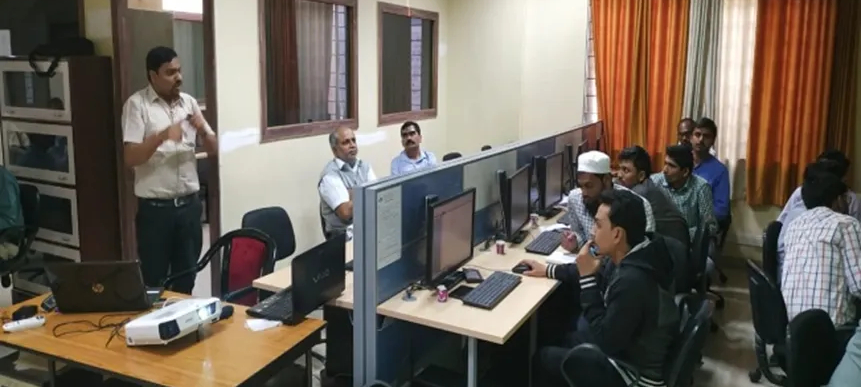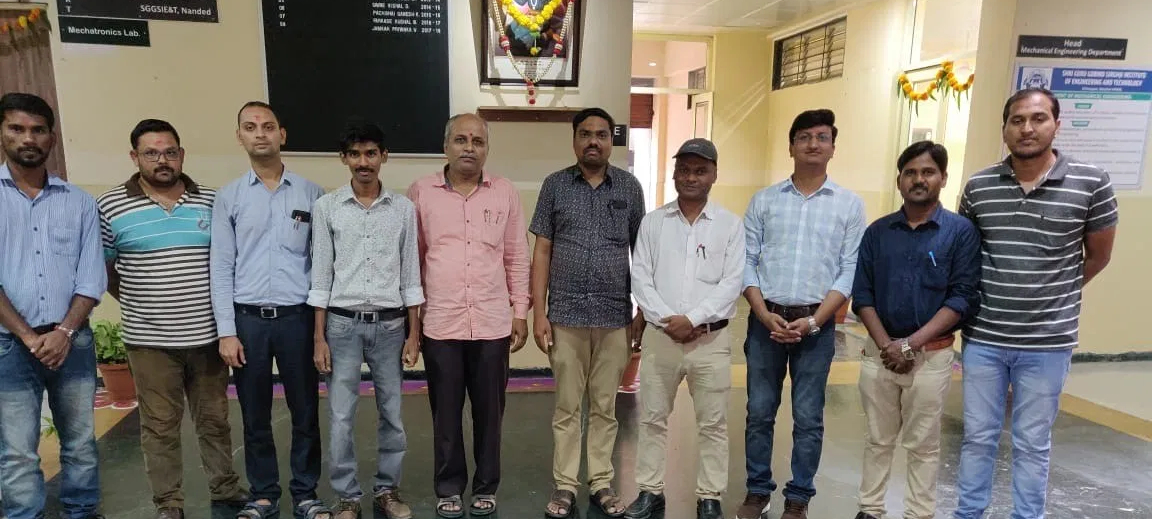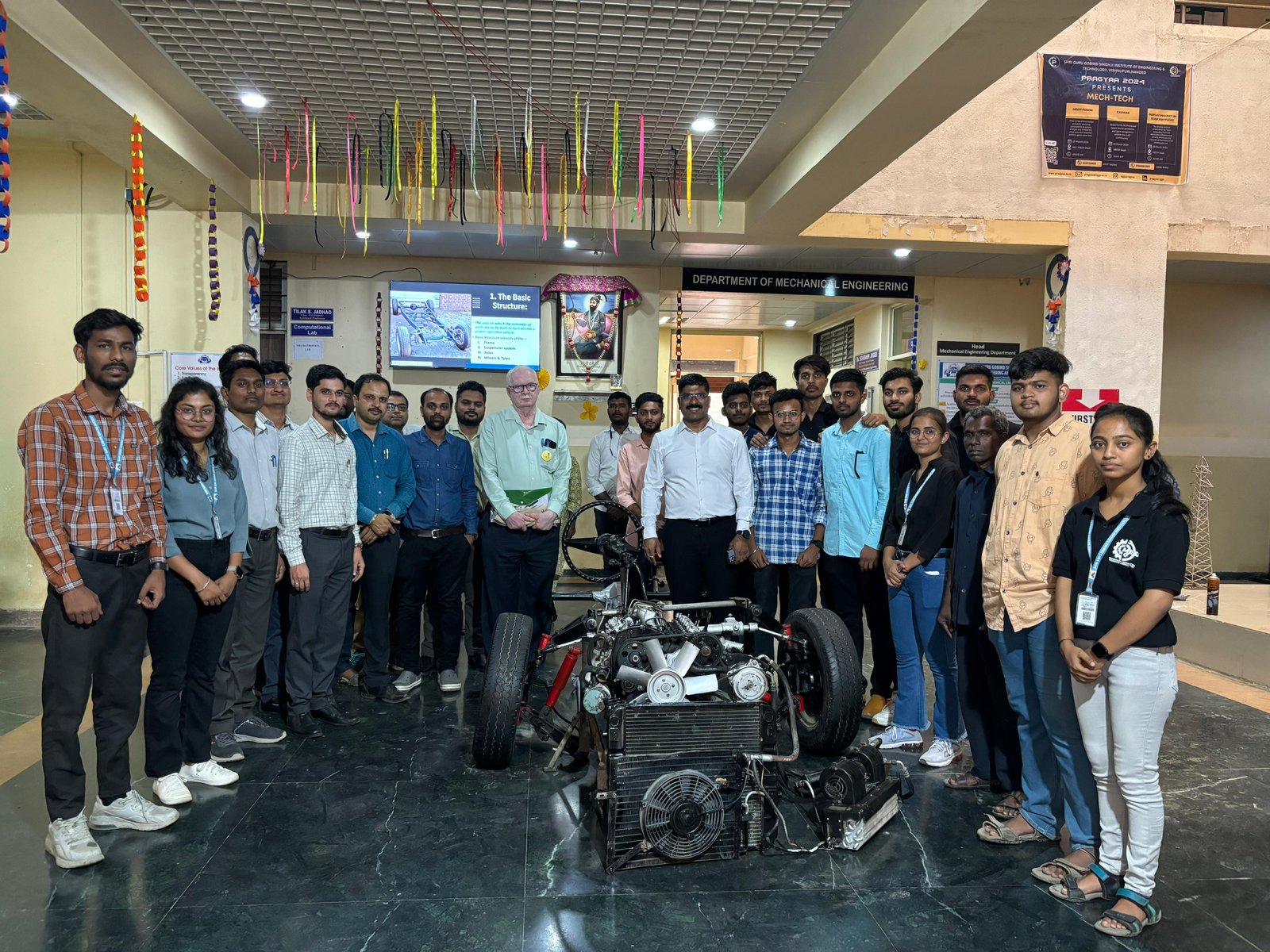













Pragmatic Board of Management of SGGSIE&T, Nanded took an initiative of offering basic engineering programs besides the non-traditional ones already being offered by the Institute. As a consequence, Mechanical Engineering program has been started in the year 2012-13 with an intake of 60 students. For the first year of its establishment, Production Engineering Department supported the activities of this department. It has been given a separate identity since academic year 2013-14 with provision of requisite infrastructure in terms of building, basic laboratory setup, etc. Mechanical Engineering Department offers a M. Tech. program in Mechanical – Product Lifecycle Management (PLM) besides the undergraduate program on Mechanical Engineering.

Mechanical Engineering Department boasts of quality input of students, good interaction with industries for providing the right exposure to students, dedicated faculty and association of industry experts in the form of adjunct faculty, state of the art facility for Mechanical & PLM.
The Department has a focussed approach for development in the areas of Thermal Engineering, Mechanical Design, Mechatronics, Automobile Engineering and Energy Management for its undergraduate program. The syllabus has been framed keeping these streams in mind. M. Tech. program is an industry orientated program with strong association with leading industries in the sector. In tune with the Institute’s three pronged agenda of teaching, research and transfer of technology, the department is involved in active research in the aforementioned areas and is associating strongly with local and nearby industries for providing services.
The department offers following programmes:
|
Programme |
Type of the Programme |
Duration |
Strength |
Year of Starting |
NBA Accreditation |
|
B.Tech. |
Full Time |
4 Years |
60 |
2012 |
- |
| M.Tech. Mechanical-PLM | Full Time | 2 Years | 18 | 2009 | - |
VISION
Provide an environment for quality education, pro-industry research and innovation with industry partnership to meet world class educational standards.
MISSION
- M-1 To offer state-of-the-art undergraduate, postgraduate and doctoral programmes in the domain of Mechanical Engineering.
- M-2 Continual up-gradation of curriculum and research facilities in the context of world class educational standards, as per the need of stakeholders.
- M-3 To offer education programme to develop skilled and employable human power to accept societal and global challenges.
- M-4 To develop linkages with Industries, research organisations, institutions and professional associations.
- M-5 To encourage faculty, staff and students for research and development activities, TY innovation, consultation and entrepreneurship.
Programme Specific Outcomes (PSOs):
B.Tech. Mechanical Engineering
- PSO – 1 Apply principles of engineering, basic sciences and mathematics to model, analyse, design mechanical systems & processes.
- PSO – 2 Plan, operate, control, maintain & improve mechanical systems, components & processes.
M.Tech. Mechanical Product Lifecycle Management
- PSO – 1 Possess skills required to integrate, develop, customize & implement Product Lifecycle Management tools, strategies, principles in any business organisation.
- PSO – 2 Students should be able to apply technical & managerial skills to work as a good team leader as well as players in diverse interdisciplinary projects.
Programme Educational Objectives (PEOs):
- PEO-1 Provide knowledge and skills of broad spectrum in domain of Mechanical Engineering.
- PEO-2 Cater the needs of Indian as well as multinational industries and other organizations.
- PEO-3 Be competent with a strong technological background, to formulate, analyze the societal, industrial and environmental challenges to obtain the economically viable solutions.
- PEO-4 Foundation for higher studies, research, entrepreneurship and administrative services.
- PEO-5 Inculcate the attitude of self and lifelong learning, out of box thinking, ethics and integrity, professional and managerial competencies to work on the multidisciplinary projects.
Programme Outcomes (POs):
Engineering Graduates will be able to:
- Engineering knowledge: Apply the knowledge of mathematics, science, engineering fundamentals, and an engineering specialization to the solution of complex engineering problems.
- Problem analysis: Identify, formulate, review research literature, and analyze complex engineering problems reaching substantiated conclusions using first principles of mathematics, natural sciences, and engineering sciences.
- Design/development of solutions: Design solutions for complex engineering problems and design system components or processes that meet the specified needs with appropriate consideration for the public health and safety, and the cultural, societal, and environmental considerations.
- Conduct investigations of complex problems: Use research-based knowledge and research methods including design of experiments, analysis and interpretation of data, and synthesis of the information to provide valid conclusions.
- Modern tool usage: Create, select, and apply appropriate techniques, resources, and modern engineering and IT tools including prediction and modeling to complex engineering activities with an understanding of the limitations.
- The engineer and society: Apply reasoning informed by the contextual knowledge to assess societal, health, safety, legal and cultural issues and the consequent responsibilities relevant to the professional engineering practice.
- Environment and sustainability: Understand the impact of the professional engineering solutions in societal and environmental contexts, and demonstrate the knowledge of, and need for sustainable development.
- Ethics: Apply ethical principles and commit to professional ethics and responsibilities and norms of the engineering practice.
- Individual and team work: Function effectively as an individual, and as a member or leader in diverse teams, and in multidisciplinary settings.
- Communication: Communicate effectively on complex engineering activities with the engineering community and with society at large, such as, being able to comprehend and write effective reports and design documentation, make effective presentations, and give and receive clear instructions.
- Project management and finance: Demonstrate knowledge and understanding of the engineering and management principles and apply these to one’s own work, as a member and leader in a team, to manage projects and in multidisciplinary environments.
- Life-long learning: Recognize the need for, and have the preparation and ability to engage in independent and life-long learning in the broadest context of technological change.

